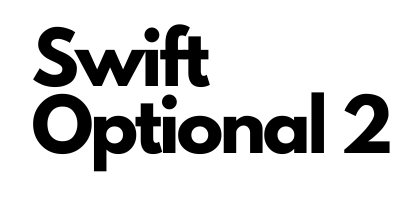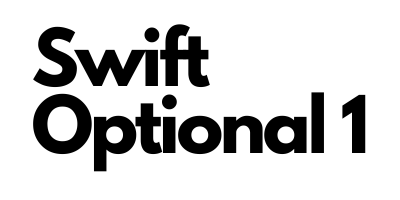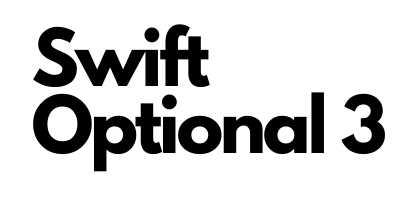Hello! Today, we’ll learn about Optional Unwrapping in Swift. Specifically, we’ll focus on Forced Unwrapping, which is one way to unwrap optionals.
1. What is Optional Unwrapping?
First, let’s review Optionals. In Swift, an Optional type is used to indicate that a variable might have no value (nil). An optional wraps a value, meaning the value could exist, or it could be nil.
let a: Int? = 4
Here, a is of type Int?. This means that a is not just an Int, but an Optional Int. Since it’s wrapped in an optional, you can’t directly use the value until you unwrap it. This process is called Optional Unwrapping.
let myInfo: Int? = 4
print("My age is \(myInfo)") // Output: Optional(4)
In the code above, because myInfo is an optional, it prints Optional(4). You need to unwrap the optional to use its actual value.
2. Forced Unwrapping
Forced Unwrapping means unwrapping an optional regardless of whether it contains a value or is nil. This can be risky because if the optional is nil, it will cause a runtime error.
To force unwrap an optional, you use the ! operator.
let myAge: Int? = 4
print("My age is \(myAge!)") // Output: My age is 4
In this example, the ! after myAge forces the optional to unwrap, and it gives you the value 4.
Danger of Forced Unwrapping
Forced unwrapping can be dangerous if the optional contains nil. Trying to force unwrap a nil value will crash your program.
let myName: String? = nil
print(myName!) // Runtime error: unexpectedly found nil while unwrapping an Optional value
In the code above, myName is nil, and when we force unwrap it using !, a runtime error occurs, causing the program to crash.
3. A Safer Way to Handle Optionals
Instead of directly force unwrapping, you can check if the optional contains a value first:
let myAge: Int? = nil
if myAge != nil {
print("My age is \(myAge!)")
} else {
print("Age is not available.")
}
Here, we first check if myAge contains a value before force unwrapping it. However, this is still not the best practice. A safer and more common approach is Optional Binding, which we’ll cover in the next tutorial.
4. Summary
- Optional Unwrapping: The process of converting an optional type to a non-optional type.
- Forced Unwrapping: Using
!to forcibly unwrap an optional. If the optional containsnil, this will cause a runtime error. - Forced unwrapping should be avoided when possible because it’s risky. In most cases, use Optional Binding or other safe unwrapping techniques.
In the next post, we’ll learn about Optional Binding, which is a safer way to handle optionals! 😎


